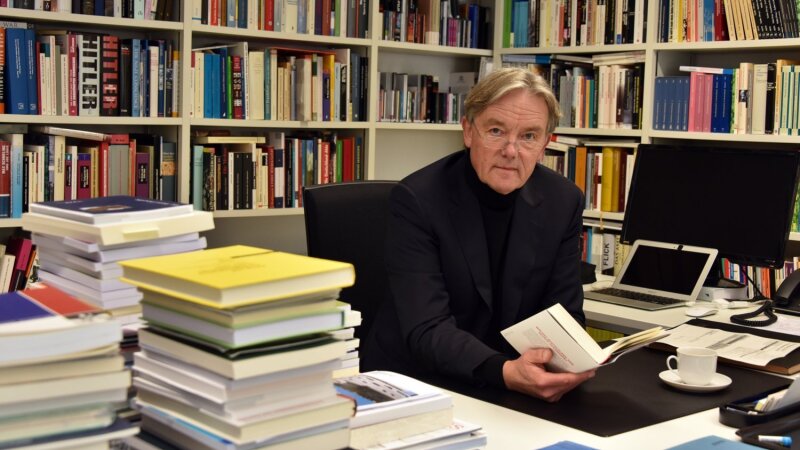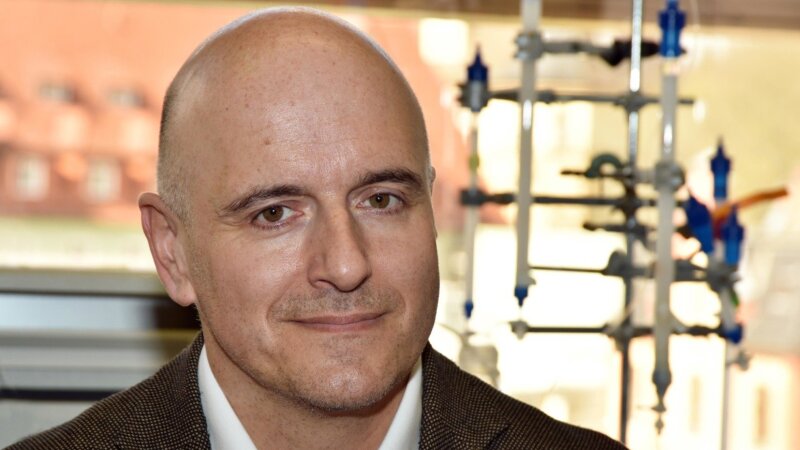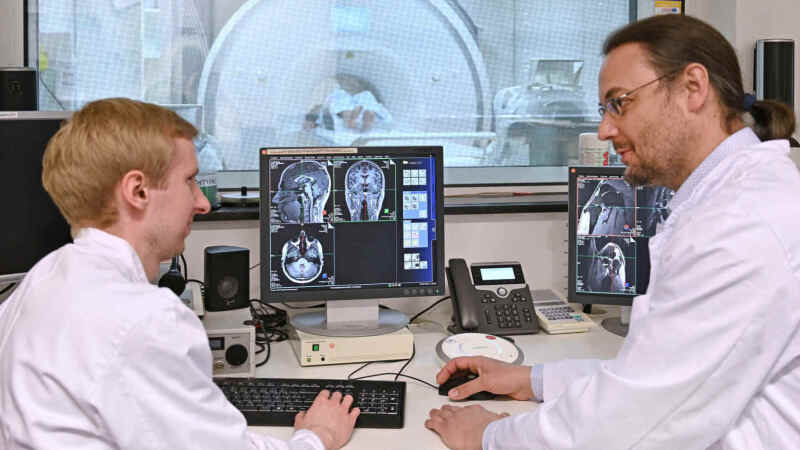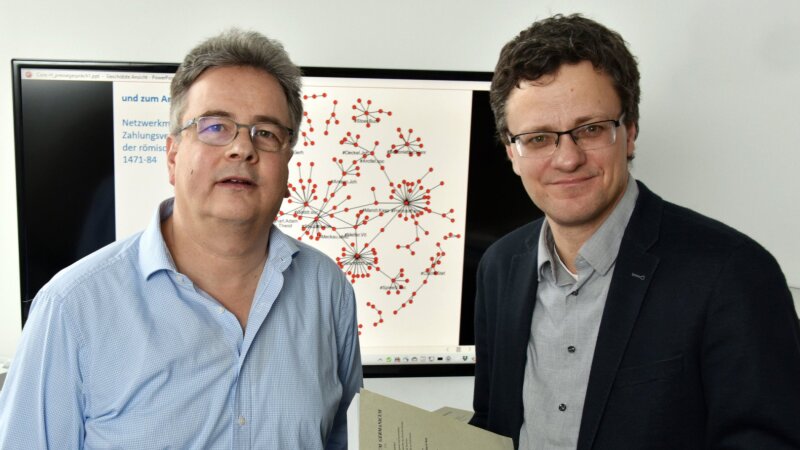New projects
Office of the Federal President and Nazi past
The Office of the Federal President (Bundespräsidialamt) has commissioned historian Prof. Dr Norbert Frei from the Friedrich Schiller University Jena to lead the research project »The Office of the Federal President and National Socialism«. In the course of the project, which is scheduled to run for just under two years, the Office of the Federal President, created in 1949, and the Federal Presidents' dealings with the Nazi past will be examined. On the one hand, it will be investigated whether there was any continuity in the Office of the Federal President in terms of personnel or ideas during the Nazi era. On the other hand, it is to be investigated in the form of a history of impact how the Federal Presidents in their public and internal actions – prepared and supported by the staff of the Office of the Federal President – dealt with the topic of National Socialism, for example in speeches, during state visits, appointments in Germany and the bestowal of orders. The decision in favour of Professor Frei was made after a two-stage selection process: At the end of 2019, the Office of the Federal President first carried out an expression of interest procedure, after which the best qualified scientists were invited to submit a detailed application. [PM]
Historian of modern and contemporary history Prof. Dr Norbert Frei from the Friedrich Schiller University Jena.
Image: Anne Günther (University of Jena)Making valuable data available to all
Researchers from the Friedrich Schiller University will play a leading role in the establishment of the National Research Data Infrastructure (Nationale Forschungsdateninfrastruktur, NFDI). They have twice been successful in the federal and state competition for funding in the National Research Data Infrastructure. The »NFDI4Chem« consortium, which is led by the University of Jena, and the »NFDI4BioDiversity« consortium, in which the Friedrich Schiller University plays a substantial role, will both be funded. Both consortia will receive funding of up to 25 million euros each for an initial period of five years starting in autumn 2020.
The »NFDI4Chem« consortium under the leadership of the University of Jena with the spokespersons Prof. Dr Christoph Steinbeck (Jena) and Dr Oliver Koepler (Hanover) wants to advance the digitalization of all areas of the research process in chemistry. The »NFDI4BioDiversity« project is coordinated by Prof. Dr Frank Oliver Glöckner at the University of Bremen and aims to give comprehensive support for researchers from biodiversity, ecology and environmental sciences and to provide the data basis for decisions in society and politics. [AB]
Prof. Dr. Christoph Steinbeck.
Image: Anne Günther (University of Jena)Romanticism as a striking global phenomenon
In the research training group »The Romantic Model. Variation – Scope – Relevance«, the influence of romanticism on contemporary forms of world interpretation, self-reflection, aesthetic design and lifestyles has been researched at the Friedrich Schiller University Jena since 2015. Researchers from the fields of literature, linguistics, music and art studies, history, theology, computer linguistics and sociology are investigating Romanticism as a distinctive European and non-European phenomenon with partners from Jena, Germany and around the world. In 2015, the German Research Foundation (Deutsche Forschungsgemeinschaft, DFG) granted 3.8 million euros in funding to research Romanticism in Jena for the first time as a model of interpretation, a model of representation and perception, and a model of action. The new DFG funding decision runs until September 2024 and has a total volume of 4.5 million euros. Prof. Dr Stefan Matuschek, spokesperson for the research training group, sees the continuation of funding as recognition of both the research approach of investigating the continued impact of historical Romanticism as a model-building process and the innovative supervision and qualification concept developed in 2015 for the research training group’s fellows. [AB]
The Research Training Group on "Model Romanticism" is entering its second phase.
Image: Anne Günther (University of Jena)Difficult-to-treat depression: Early recognition of wheter ketamine helps
More than four million people in Germany suffer from depression. Standard treatment is inadequate for about one third of those affected, and for another third it is not effective at all. The cause is believed to be individual differences in brain metabolism. However, quick help is necessary, especially in severe cases. This could be provided by the drug ketamine, which has recently been approved as an antidepressant. In order to be able to weigh up the benefits and risks of the drug on an individualized basis, a research team from the Psychiatry and Psychosomatics unit at the Jena University Hospital, led by Prof. Dr Martin Walter, is now starting a research project together with scientists in Mannheim, Tübingen, Turku in Finland and Strasbourg in France with the aim of establishing a biomarker for the response of ketamine treatment. In a clinical study involving 100 patients suffering from difficult-to-treat depression and in parallel in an animal model, the scientists are investigating metabolic parameters in the blood and brain as well as MRI image data on network activity in the brain. The project is scheduled to last three years and is funded by the EU and the German Federal Ministry of Education and Research with 800,000 euros as part of the NEURON network. [vdG]
Prof. Dr Martin Walter (right) and Dr Florian Götting measure brain network activity in the MRI.
Image: Michael Szabo/UKJImproving drug safetiy in patiens with polymedication
In the joint project »POLAR_MI« (Polypharmacy, Drug Interactions and Risks), 21 partners, including the Jena University Hospital, have joined forces to improve the care of patients with polymedication and to increase the safety of drug treatment. Older patients in particular often suffer from several diseases and therefore have to take a large number of drugs at the same time. This is associated with risks, since the drugs can influence each other and the underlying diseases can also modulate their tolerability. The desired effect of individual active ingredients can be weakened or undesirably increased until they become ineffective. One aim of the project is to determine how often potentially inadequate medication occurs and in which vulnerable populations it is particularly prevalent. In addition, the researchers want to improve and standardize the electronic documentation of medication in the individual units and develop innovative algorithms to classify extremely vulnerable patients and high-risk drugs. The project is led by the University of Leipzig and the Jena University Hospital (Prof. Dr André Scherag) as assistant and will be funded by the Federal Ministry of Education and Research with almost 5.5 million euros until May 2022. [vdG]
The joint project of the Medical Informatics Initiative (Medizininformatik-Initiative) aims to improve drug safety in patients with polymedication.
Image: UKJThe historian of tomorrow
In the humanities, digitalization initiatives have so far been limited to making sources available on the internet. Applications based on modern information technology, however, offer far more potential and could become an important tool for philosophers, linguists and historians in the coming years. Historians and computer scientists around Prof. Clemens Beckstein and Dr Robert Gramsch-Stehfest from the Friedrich Schiller University Jena have now launched a joint initiative to explore the possibilities of such a cooperation and to make it public. Over the next two years, the state of Thuringia will support the »Collaborative Open Research Environment for the Humanities« (CORE-H) project with 200,000 euros from its state »ProDigital« program. The new project aims to further expand and strengthen the bridge between computer science and the humanities disciplines. An interdisciplinary network – the DHnet – has already existed for some time, which promotes cooperation in the field of digital humanities at the Friedrich Schiller University Jena and drives forward methodological development. [sh]
Prof. Clemens Beckstein (left), Institute of Computer Science and Dr Robert Gramsch-Stehfest, Institute of History
Image: Anne Günther (University of Jena)




